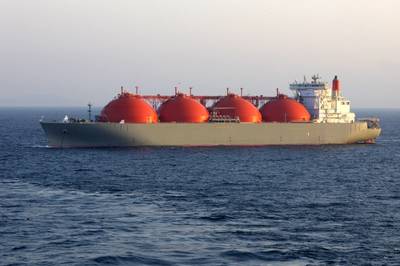Australia's conservative government unveiled a radical plan on Thursday to restrict exports of liquefied natural gas (LNG) at times when domestic shortages push up local prices, aiming to ease soaring energy costs for local manufacturers.
The plan would allow Australia's resources minister to impose controls on LNG exports on advice from the market operator and regulator, as the government seeks to cap domestic gas prices, which have become a political hot potato.
"It's not a threat. This will be export controls. They will not be able to export gas if that has the consequence of reducing the availability of gas for the Australian market," Prime Minister Malcolm Turnbull told Australian Broadcasting Corp radio.
Australia is the world's second-largest LNG exporter after Qatar, but local gas prices have rocketed over the past two years with the start of LNG exports from three newly built plants in eastern Australia to customers in China, Japan, Korea and Malaysia.
The government's move, due to take effect on July 1, drew a swift rebuke from gas producers, who called instead for curbs on onshore gas exploration to be lifted to help boost supply.
"Restricting exports is almost unprecedented for Australia," said Malcolm Roberts, chief executive of the Australian Petroleum Production and Exploration Association.
The Australian Energy Market Operator warned in March of a shortage set to hit eastern Australia, and the government and some companies have already taken steps to ensure sufficient gas for power plants at peak times.
Analysts questioned whether the government's plan would lead to lower gas prices, as gas would only be diverted when prices are high.
"There is no silver bullet policy solution here," said analyst Saul Kavonic at energy consultants Wood Mackenzie. "Intervention like this is going to be opaque and either ineffective, or pose long term unintended adverse consequences for energy security or the economy."
The lack of detail around the plan would create confusion, increase political risk and discourage investment in new supply, he added.
GLNG in Focus
Of the three east coast LNG plants, only Gladstone LNG (GLNG), operated by Australia's Santos Ltd, is drawing gas out of the domestic market to help meet its export contracts.
Analysts said the plan could expose GLNG to a volatile global LNG market if the project had to buy cargoes to replace gas diverted to the domestic market.
"This is a dangerous game to play given the LNG spot market can tighten quickly with supply outages or weather-driven demand spikes," RBC analyst Ben Wilson said in a note.
Santos said it was seeking more details on the new policy but pledged in future to supply more gas into the domestic market than it purchased for its share of LNG exports.
Its partners in GLNG are France's Total SA, Malaysia's Petronas and Korea Gas Corp (KOGAS), while Petronas and KOGAS are the plant's two contract customers.
KOGAS said it might be affected by any export curbs but had no details.
The two other eastern LNG exporters, Queensland Curtis LNG, operated by Royal Dutch Shell, and Australia Pacific LNG, operated by ConocoPhillips, said they were net gas suppliers to the domestic market.
Manufacturers welcomed Turnbull's move.
The government has armed itself with "a bigger stick" to ensure the industry balanced the needs of export customers with its obligation to supply the domestic market at a fair price, the Energy Users Association of Australia said.
(By Sonali Paul; Reporting by Wayne Cole and Sonali Paul; Editing by Richard Pullin)














